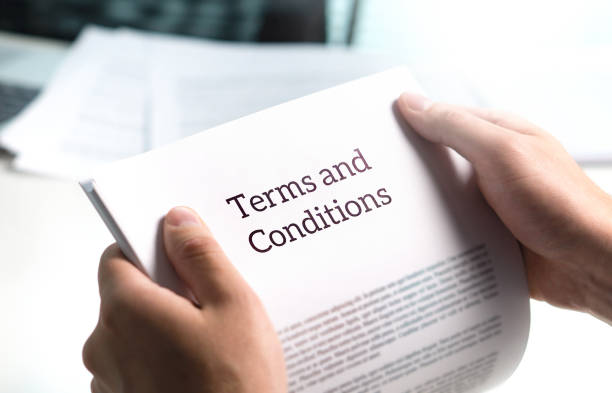You are now leaving the Bright website and entering a third-party website. Bright has no control over the content, products, or services offered, nor the security or privacy of information transmitted to others via their website. We recommend that you review the privacy policy of the site you are entering. Bright does not guarantee or endorse the products, information, or recommendations provided on any third-party website.
In today's financial landscape, managing multiple debts can be a daunting task for many individuals. Juggling various payments, interest rates, and due dates adds stress and impacts one's financial stability. Debt consolidation stands out as a potential solution, offering a simplified approach by combining multiple debts into a single, more manageable payment. Among the various options available, using a personal loan for debt consolidation has garnered attention.
But before we get into the topic, it is recommended to read in detail whether debt consolidation can save you from bad debt by Bright Money!
This article aims to delve into the nuances of utilizing personal loans for debt consolidation, assessing its feasibility, benefits, considerations, and potential drawbacks.
Understanding Debt Consolidation
Debt consolidation involves merging multiple debts, such as credit card balances, medical bills, or personal loans, into a single loan or payment. The primary objective is to streamline debt management by simplifying the repayment process and potentially securing a lower interest rate. The typical debt consolidation loan amount was between $10,000 and $20,000.
Can You Use A Personal Loan For Debt Consolidation?
Yes, using a personal loan for debt consolidation is a common and viable strategy to streamline multiple debts into a single, manageable payment, potentially offering lower interest rates and simplified financial management. 54% of respondents used a personal loan for debt consolidation to simplify and reduce their monthly payments.
If you think a personal loan is not the right choice for you, you can opt for debt consolidation loans, like the Bright Credit by Bright Money to pay off your debts and build credit!
The Role of Personal Loans in Debt Consolidation
Personal loans serve as a versatile financial tool that borrowers can utilize for various purposes, including debt consolidation. Unlike specific loans tailored for particular expenses (like auto loans or mortgages), personal loans offer flexibility in usage, making them a feasible option for consolidating various debts into one.
Benefits of Using a Personal Loan for Debt Consolidation
1. Simplified Repayment:
Managing multiple debts can be overwhelming, leading to confusion about due dates, varying interest rates, and different minimum payments. Borrowers can streamline their financial responsibilities by consolidating debts into a single personal loan. Instead of juggling various payments, they have one clear and consistent payment schedule. This simplicity reduces mental stress and minimizes the chances of missing payments, thus avoiding late fees or negative impacts on credit scores.
2. Potentially Lower Interest Rates:
Credit cards and other high-interest debts often come with steep interest rates, which can significantly increase the overall amount paid over time. Personal loans, on the other hand, frequently offer lower interest rates, between 15% to 25%, especially for individuals with good credit. By consolidating high-interest debts into a personal loan with a lower rate, borrowers can potentially save a considerable amount of money on interest payments. This reduction in interest rates can lead to substantial long-term savings and facilitate faster debt repayment.
3. Fixed Payment Terms:
Personal loans commonly feature fixed interest rates and fixed monthly payments throughout the loan term. This stability in repayment terms provides borrowers with predictability and consistency in their financial planning. Knowing the exact amount due each month simplifies budgeting and financial forecasting, allowing individuals to plan accordingly without worrying about fluctuating interest rates or payment amounts.
4. Improved Credit Score:
Consolidating multiple debts into a personal loan can positively impact credit scores when managed responsibly. Timely payments on the consolidated loan demonstrate financial discipline and reliability to creditors and credit bureaus. Successfully handling the consolidation process reflects responsible financial behavior, which can enhance creditworthiness over time. Moreover, reducing the utilization of high-interest credit cards by paying them off through consolidation can positively affect the credit utilization ratio, another factor influencing credit scores.

Steps in Utilizing a Personal Loan for Debt Consolidation
Let's consider Mark, who's navigating the process of consolidating his debts. Here's a detailed breakdown of his actions and considerations:
1. Assess Your Debts:
Mark begins by cataloging his debts meticulously. He compiles a detailed list, noting the $5,000 outstanding balance on his credit card with an interest rate of 18%, a personal loan of $8,000 at 12% interest, and a student loan of $12,000 at 6% interest. This inventory grants him a comprehensive overview of his total debt, including interest rates and monthly payments, aiding him in making informed decisions.
2. Research Loan Options:
He explores various lenders, including banks and online platforms. Mark compares their offerings, considering interest rates, loan terms, and associated fees. He carefully calculates the total cost of each loan, factoring in origination fees and prepayment penalties. This detailed analysis ensures that he selects a loan aligned with his financial objectives, with particular emphasis on securing a lower interest rate for effective consolidation.
3. Apply for the Loan:
Identifying a suitable lender, Mark proceeds with the application process. He gathers necessary documentation—proof of income, identification, and detailed debt records. Aware of the impending credit check, he ensures his credit report is in good standing, understanding its potential impact on securing favorable loan terms, such as a lower interest rate.
4. Use Loan Funds to Pay Off Debts:
Upon approval and receipt of the loan funds, Mark strategically allocates these funds to settle his identified debts directly. He makes payments to each creditor, effectively consolidating his multiple debts into a single loan. This simplifies his financial responsibilities, streamlining his monthly payments into manageable installments.
5. Commit to Repayment:
Mark meticulously devises a repayment strategy for the consolidated loan. He integrates the new monthly payment into his budget, ensuring it aligns seamlessly with his financial plan. Implementing reminders and setting up automatic transfers, he safeguards against missed payments.
Potential Drawbacks and Risks
1. Possible Higher Overall Costs:
While securing a lower interest rate might appear advantageous initially, extending the repayment period to manage lower monthly payments can result in higher overall interest payments. Even with a reduced interest rate, stretching the repayment timeline over a more extended period increases the total interest accrued. Therefore, while the monthly payments may be more manageable, the extended loan term could lead to paying more in interest over the life of the loan compared to the original debts.
2. Risk of Accumulating New Debt:
Consolidating debts through a personal loan doesn’t address the root cause of debt accumulation—poor spending habits or financial mismanagement. Without addressing these issues and exercising financial discipline, individuals may fall back into overspending or accumulating new debts while still repaying the consolidated loan. This could exacerbate the overall debt burden and counteract the benefits gained through consolidation.
3. Impact on Credit Score:
Applying for a new loan, such as a personal loan for debt consolidation, triggers a hard inquiry on your credit report. This inquiry can temporarily lower your credit score. Additionally, mishandling the consolidation process—missing payments, defaulting on the new loan, or accruing new debts—can further damage your creditworthiness. Late payments or defaults could negatively impact your credit score and overall credit profile, potentially making it harder to access credit or obtain favorable terms in the future.
Conclusion
Using a personal loan for debt consolidation presents a viable option for simplifying and managing multiple debts. When executed thoughtfully, it can lead to financial relief, lower interest rates, and improved financial stability. However, individuals must thoroughly assess their financial situation, research available options, and consider the long-term implications before committing to debt consolidation using a personal loan. Ultimately, responsible financial management and disciplined repayment practices are essential in leveraging personal loans for successful debt consolidation.
By understanding the intricacies, weighing the pros and cons, choosing Bright Credit by Bright Money for Debt Consolidation loans, and making informed decisions, individuals can navigate the terrain of debt consolidation and use personal loans to achieve financial freedom.
Must Read:
How does a debt consolidation calculator work?
How can I Consolidate Credit Card Debt? 5 effective ways
Why should You pay off high-interest debt first?
FAQs
1.What is the primary advantage of using a personal loan for debt consolidation?
The primary advantage is the simplification of multiple debts into a single, manageable payment. This streamlines financial planning, reduces the chances of missed payments, and may offer the potential for lower interest rates, leading to cost savings.
2. How do I know if a personal loan is the right choice for consolidating my debts?
Assess your current financial situation, including the types of debts you have, interest rates, and your credit score. A personal loan might be a suitable choice if you seek simplicity in managing debts and potentially lower interest rates.
3. Can I consolidate all types of debts with a personal loan?
In many cases, yes. Personal loans are versatile and can be used to consolidate various unsecured debts, such as credit card balances, medical bills, and other personal loans. However, secured debts like mortgages or auto loans typically cannot be consolidated with a personal loan.
4. How does a personal loan impact my credit score when used for debt consolidation?
Initially, applying for a personal loan may result in a temporary decrease in your credit score due to a hard inquiry. However, successfully consolidating debts and making timely payments on the personal loan can positively impact your credit score by demonstrating responsible financial behavior.
References
https://bing.com/search?q=statistics+on+using+a+personal+loan+for+debt+consolidation



